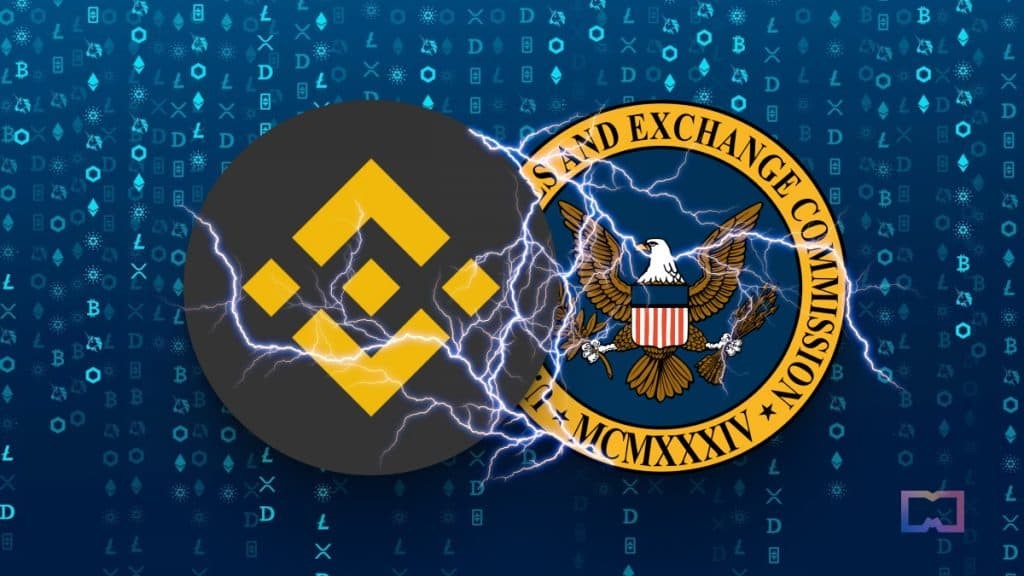
Binance vs SEC: Battle for Crypto Freedom or a Fight for Regulatory Compliance?
Anndy Lian
Intergovernmental Blockchain Expert . Best Selling Book Author . Investor . Board Member . Keynote Speaker .
Binance , the world’s largest cryptocurrency exchange by trading volume, is facing a legal challenge from the U.S. Securities and Exchange Commission (SEC), which accused it of violating securities laws and defrauding investors.
Binance and its CEO, Changpeng Zhao, filed court papers seeking to dismiss the lawsuit, claiming that the SEC has no jurisdiction over their activities and that they have complied with all applicable laws. However, the SEC has not given up on its pursuit of Binance, and has recently requested access to Binance.US ’s software and documents, which was denied by a U.S. court.
The outcome of this case could have significant implications for the future of the crypto industry and its regulation in the U.S. and beyond.
How the Case Unfurled
The SEC’s Allegations The SEC’s lawsuit against Binance, Binance.US , and Zhao was filed in June 2023, following a months-long investigation into the exchange’s operations. The SEC alleges that Binance and Zhao engaged in a series of securities law violations, including:
The SEC seeks injunctive relief, disgorgement of ill-gotten gains, civil penalties and permanent bans on Binance and Zhao from engaging in any securities-related activities in the U.S.
Binance’s Defense Binance and Zhao have denied the SEC’s allegations and have filed motions to dismiss the lawsuit. They argue that the SEC has no authority or jurisdiction over their activities, and they have complied with all applicable laws. They contend that:
Binance.US ’s Response Binance.US , which is formally known as BAM Trading Services Inc., has also filed a motion to dismiss the charges against it.
It claims that it is a separate and independent entity from Binance and Zhao, and that it operates a fully compliant and regulated crypto trading platform in the U.S. It asserts that:
Binance.US argues that the SEC’s lawsuit is based on unfounded allegations and irrelevant evidence, and that it should be dismissed for lack of merit and jurisdiction.
The SEC’s Request for Inspection In a bid to bolster its case against Binance, the SEC has sought to inspect Binance.US ’s software and documents, claiming that they are relevant and material to its investigation. The SEC asserts that:
The SEC has requested access to Binance.US ’s source code, user interface, application programming interface, database schema, data dictionary, technical specifications, user manuals, policies and procedures, contracts and agreements, correspondence and communications, financial statements, audit reports and other relevant records.
However, the SEC’s request for inspection was denied by a U.S. district court judge in New York. The judge ruled that:
The judge concluded that the SEC had failed to meet its burden of showing that its request for inspection was relevant, material, necessary, reasonable, or proportional to the issues in dispute. The judge also noted that granting the SEC’s request would violate Binance.US ’s privacy rights and trade secrets protections.
Implications of SEC’s Ruling
The court’s denial of the SEC’s request for inspection is a significant setback for the SEC in its lawsuit against Binance. It indicates that the court is not convinced by the SEC’s arguments or evidence, and that it is not willing to grant the SEC unlimited access to Binance.US ’s software and documents. It also suggests that the court is sympathetic to Binance.US ’s defense and claims of compliance.
However, the court’s denial does not mean that the SEC’s lawsuit is over. The SEC may still pursue other means of obtaining information from Binance.US or other parties. The SEC may also appeal the court’s decision or file a revised request for inspection. The SEC may also present other arguments or evidence to support its allegations against Binance.
The outcome of this case could have significant implications for the future of the crypto industry and its regulation in the U.S. and beyond. If the SEC prevails in its lawsuit against Binance, it could set a precedent for cracking down on other crypto platforms that operate in or target U.S. investors without complying with U.S. securities laws. It could also deter innovation and competition in the crypto space by imposing stringent requirements and restrictions on crypto platforms.
On the other hand, if Binance succeeds in dismissing the lawsuit or reaching a settlement with the SEC, it could signal a victory for crypto freedom and innovation. It could also encourage more dialogue and cooperation between crypto platforms and regulators to foster a more conducive and compliant environment for crypto development.
In any case, this case is likely to shape the future of crypto regulation in the U.S. and beyond. It will test the limits of the SEC’s authority and jurisdiction over crypto assets and activities. It will also challenge the definitions and classifications of crypto assets as securities or non-securities. It will also highlight the need for clear and consistent guidance and rules for crypto platforms and investors.
This case is not only a legal battle between Binance and the SEC. It is also a fight for crypto freedom or a fight for regulatory compliance. It is a fight that will have profound implications for the crypto industry and society.
?
Source: https://mpost.io/binance-vs-sec-battle-for-crypto-freedom-or-a-fight-for-regulatory-compliance/